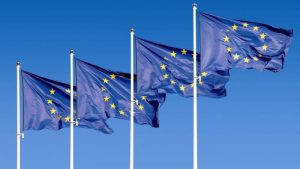
After more than 40 years of operation, DTVE is closing its doors and our website will no longer be updated daily. Thank you for all of your support.
EU postpones decision on controversial copyright directive
 Trilogue negotiations – the parlaying between Europe’s three key institutions – over the final form of the EU’s controversial Copyright Directive yesterday failed to produce a deal, with participants failing to agree on a range of issues including the controversial Article 13, which would see web companies such as Facebook, Twitter and YouTube forced to pay for the work of artists and journalists that appear on their sites, and use filtering systems to block copyrighted content appearing without authorisation.
Trilogue negotiations – the parlaying between Europe’s three key institutions – over the final form of the EU’s controversial Copyright Directive yesterday failed to produce a deal, with participants failing to agree on a range of issues including the controversial Article 13, which would see web companies such as Facebook, Twitter and YouTube forced to pay for the work of artists and journalists that appear on their sites, and use filtering systems to block copyrighted content appearing without authorisation.
Following the failure of negotiators for the European Commission, Council and Parliament to come to a deal, the next trilogue has been scheduled for the third week in January.
German Pirate Party MEP and vice-chair of the Greens European parliamentary group Julia Reda, one of the leading opponents of Article 13, tweeted that “it still seems that most negotiators want an Article 13 that requires upload filters”. Reda said that, following the withdrawal of an exception to the legislation for small businesses that had contributed to the European Parliament voting in favour of the new rules in September, negotiators had reverted “back to the July version” of the legislation that was originally rejected by the Parliament.
A group of rightsholders including Canal+, its parent Vivendi, TF1 and Mediaset yesterday weighed in to the debate to express “serious concerns about the direction of travel” in the face of opposition to Article 13.
In an open letter, the group urged European lawmakers “to remember that the overall aim of the original European Commission proposal was to correct the distortion of the digital market place caused by User Upload Content (UUC)services, which enable users to upload content onto their sites and then profit from the availability of creative content without returning fair revenues to rightsholders, who create and invest in such content”.
Speaking of the need for “a solution to the value gap/transfer of value” between established media rightsholders and online content sharing platforms, the group said it was vital that such companies “are liable for communication to the public and/or making available to the public when protected works are made available and that they are not eligible for the liability privilege in Article 14 of the E-Commerce Directive as far as copyright is concerned”.
The media groups and rightsholders called for “an abundance of caution” when making any move to qualify or mitigate web companies’ liability with no room for “unclear or open-ended provisions potentially obliging rightsholders to play the main role in preventing unauthorised uses of their works”.
Article 13 has been the subject of furious lobbying by internet giants, led by Google and YouTube, who claim that under the new rules, “platforms including YouTube would be forced to block the vast majority of uploads from Europe and views in Europe for content uploaded elsewhere given the uncertainty and complexity of copyright ownership”.
Broadcasters and other rights-holders have slammed YouTube’s campaign, with leading French broadcasters and other stakeholders banding together to condemn what they see as a “massive and unprecedented campaign of disinformation” and said that Google and YouTube of “once again crossed a red line in abusing their dominant position”.
The European institutions yesterday agreed a new SatCab directive, enabling content portability across EU borders, with restrictions, through an extension of the ‘country of origin’ principle.

